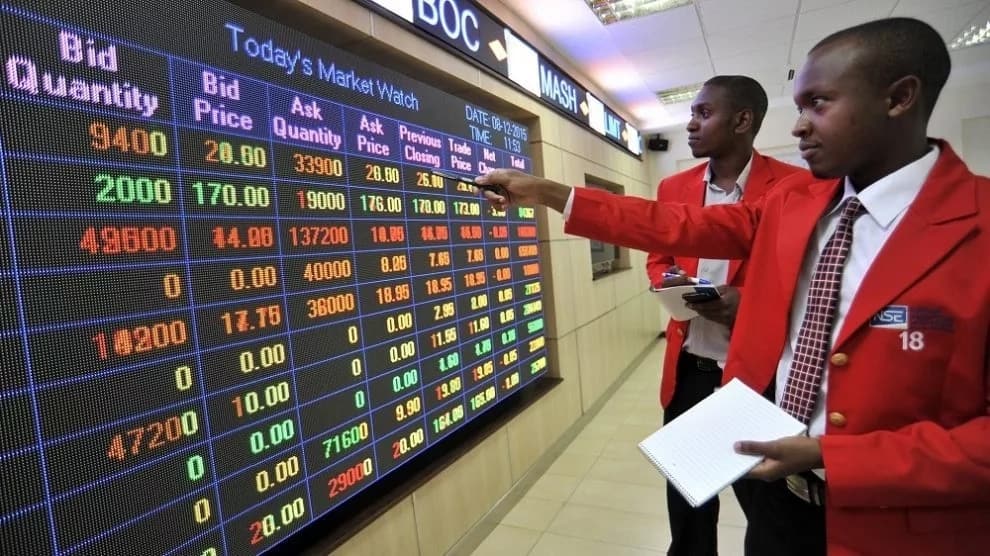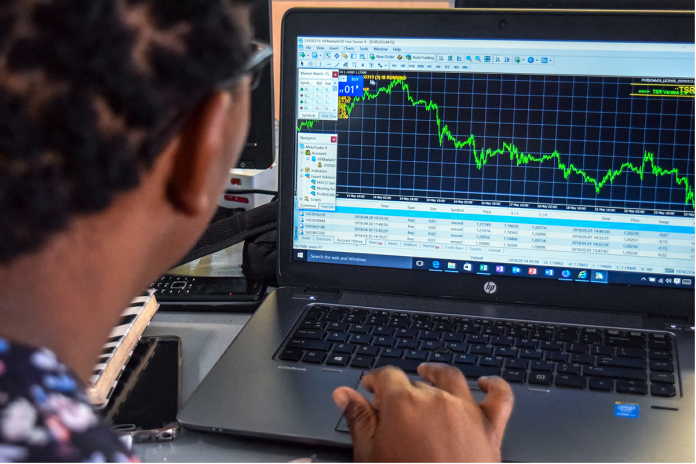In the bustling world of international finance, where currencies flow like rivers, the foreign exchange (forex) market plays a pivotal role in facilitating global trade and investment. Kenya, with its growing economy and vibrant business environment, presents an attractive landscape for individuals looking to establish a forex bureau. However, before embarking on this rewarding endeavor, understanding the stringent requirements set forth by the regulatory authorities is essential to ensure compliance and mitigate potential pitfalls. This comprehensive guide will lead you through the intricacies of the application process, empowering you to open a successful forex bureau in Kenya.

Image: thisisforextrading.blogspot.com
Understanding the Forex Industry
A forex bureau, also known as a currency exchange bureau, is a financial institution authorized to buy and sell foreign currencies to the public. It typically offers a range of services, including currency exchange, international remittances, and travel cards. As an integral part of the financial ecosystem, forex bureaus play a crucial role in facilitating cross-border payments and supporting the tourism industry.
Regulatory Landscape for Forex Bureaus in Kenya
Overseeing the operations of forex bureaus in Kenya is the Central Bank of Kenya (CBK), the country’s central bank responsible for formulating and implementing monetary policy. The CBK has established a comprehensive regulatory framework to ensure the integrity, stability, and transparency of the forex market. To obtain a license to operate a forex bureau, applicants must adhere to the following requirements:
1. Business Registration
As a first step, you must register your business with the Registrar of Companies in Kenya. This process involves selecting a unique business name, obtaining a Certificate of Registration, and registering for value-added tax (VAT) if applicable. A clear understanding of company law and corporate governance is essential to ensure compliance from the outset.

Image: businesstoday.co.ke
2. Licensing Application
Once your business is duly registered, you can proceed to apply for a forex bureau license from the CBK. The application process includes submitting a detailed business plan outlining your proposed operations, financial projections, and risk management strategy. The CBK will conduct a thorough review of your application to assess its soundness and compliance with the regulatory framework.
3. Compliance Requirements
To operate a forex bureau in Kenya, you must demonstrate compliance with various regulations, including:
-
Anti-Money Laundering (AML) and Know Your Customer (KYC) requirements: These measures are designed to prevent the use of forex bureaus for illicit financial activities. You must establish robust systems and procedures to verify customer identities, monitor transactions, and report suspicious activities to the CBK.
-
Capital Adequacy: Forex bureaus are required to maintain a minimum level of capital to ensure financial stability. The CBK sets specific capital requirements based on the anticipated volume of transactions and the level of risk involved in your operations.
-
Accounting and Auditing: You must maintain accurate and comprehensive accounting records in accordance with international financial reporting standards. Regular audits by independent accounting firms are mandatory to ensure the accuracy and reliability of your financial statements.
-
Cybersecurity: With the increasing reliance on technology in financial transactions, forex bureaus must implement robust cybersecurity measures to protect customer data and prevent unauthorized access to sensitive information. The CBK has issued guidelines on minimum cybersecurity standards that all forex bureaus must adhere to.
4. Fees and Charges
To obtain a forex bureau license, you must pay a non-refundable application fee to the CBK. Additionally, there are ongoing fees and charges associated with regulatory reporting, supervision, and examinations. It is important to factor these costs into your business model to ensure financial sustainability.
5. Corporate Governance
The CBK emphasizes the importance of sound corporate governance practices in the management of forex bureaus. You must establish a clear organizational structure, appoint qualified personnel, and implement appropriate internal controls to safeguard the interests of customers and investors.
Requirements For Opening A Forex Bureau In Kenya
Conclusion
Opening a forex bureau in Kenya is an exciting opportunity, yet it requires careful planning and adherence to stringent regulatory requirements. By thoroughly understanding the licensing process, compliance obligations, and ongoing responsibilities, you can establish a successful and compliant forex bureau that contributes to the growth of the financial sector in Kenya. Remember, continuous vigilance in maintaining compliance and adapting to evolving regulations is key to long-term success in the competitive world of foreign exchange.






